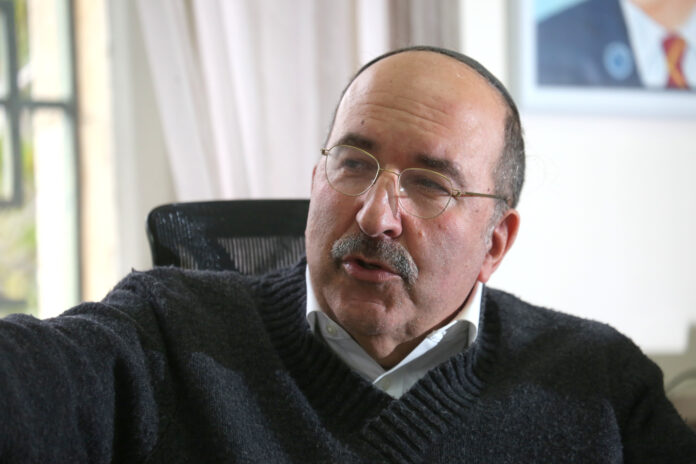Dore Gold is an American-born Israeli political scientist and diplomat who served as permanent representative of Israel to the United Nations from 1997 to 1999. He is currently the president of the Jerusalem Center for Public Affairs, a position he has held since 2000.
Do you feel that, with the seeming rift between Biden and Netanyahu, these are strange times, or is this more or less typical between the US and Israel?
We’re seeing our clashing approaches to bringing the Gaza war to an end. The Israeli view is that only a decisive Israeli victory will end the conflict quickly and lead to the freeing of Israeli hostages who are in the hands of Hamas. The American view seems to be that Israel has to carefully adhere to its view of the rules of war, and if that’s done, the conflict will come to some kind of conclusion.
An accusation has been made by President Biden that Israeli Prime Minister Netanyahu is pursuing a personal agenda and is not representing the will of the people of Israel. I know that the polls indicate otherwise, but what are your thoughts on that?
Netanyahu’s government is a coalition that was elected by an overwhelming majority of Israelis. I don’t how you can separate the people of Israel from the prime minister. There has been a serious debate in Israel about aspects of policy that has expressed itself in the streets, which can’t be denied, but that doesn’t mean that there’s an alternative candidate for prime minister whom Israelis prefer.
Can Israel defy the United States? Can they say no?
Political scientists who have analyzed this question in other cases in the world have come to the conclusion that when the issue between a great power and a small country is vital for the small country, the latter can stand its ground.
Biden contradicted himself during a recent interview, first saying that invading Rafah would be a red line, and then saying that there are no red lines and America will continue to support Israel and send weapons. Do you think that the Biden administration is really drawing a red line on the potential campaign in Rafah?
I don’t know what the president had in mind, but Israeli officials have explained on repeated occasions that if Hamas does not accept a ceasefire, Israel will have no choice but to go into Rafah. Moreover, Israeli spokesmen have explained that if under those conditions Israel does not go into Rafah, Hamas will take over the Philadelphi Corridor, which serves as the border between Egypt and Gaza, and will resume massive arms smuggling and restore much of its military power. That’s something that Israel cannot accept under any circumstances.
To read more, subscribe to Ami





















